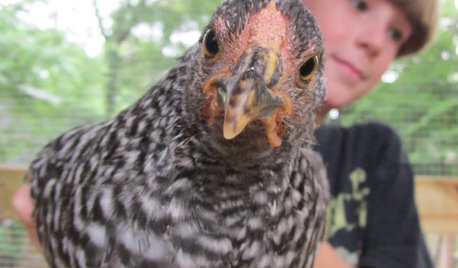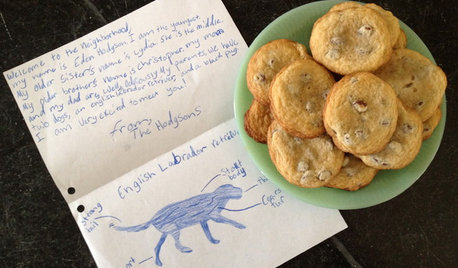newbie questions - how much to feed, leachate?
jadeite
11 years ago
Related Stories

FARM YOUR YARD4 Farm-Fresh Chicken Coops in Urban Backyards
These Atlanta henhouses are worth crowing about for their charming, practical designs
Full Story
GARDENING GUIDESGet on a Composting Kick (Hello, Free Fertilizer!)
Quit shelling out for pricey substitutes that aren’t even as good. Here’s how to give your soil the best while lightening your trash load
Full Story
GARDENING GUIDESHouzz TV: Make a Worm Bin for Rich Soil and Happy Plants
A worm-powered compost bin that can fit under a sink turns food scraps into a powerful amendment for your garden. Here’s how to make one
Full Story
REMODELING GUIDESHave a Design Dilemma? Talk Amongst Yourselves
Solve challenges by getting feedback from Houzz’s community of design lovers and professionals. Here’s how
Full Story
HOUSEPLANTS8 Essentials for Healthy Indoor Plants
Houseplants add so much to our homes — and can thrive when grown in the right conditions. Keep these tips in mind
Full Story
DECORATING GUIDESDesigning Nemo: 30 Fish Tanks Make a Decorative Splash
Bring an otherworldly glow and a calming vibe to your home with the living art of an aquarium
Full Story
COMMUNITYDiscover the Joy of Welcoming New Neighbors
Don't worry about a perfect presentation — a heartfelt note and a simple treat create a wonderful welcome to the neighborhood
Full Story
GARDENING GUIDESGarden Myths to Debunk as You Dig This Fall and Rest Over Winter
Termites hate wood mulch, don’t amend soil for trees, avoid gravel in planters — and more nuggets of garden wisdom
Full Story
FARM YOUR YARDHow to Build a Raised Bed for Your Veggies and Plants
Whether you’re farming your parking strip or beautifying your backyard, a planting box you make yourself can come in mighty handy
Full StorySponsored
More Discussions







sbryce_gw
jadeiteOriginal Author
Related Professionals
Brentwood Landscape Architects & Landscape Designers · Matthews Landscape Contractors · Amesbury Landscape Contractors · Bedford Landscape Contractors · Fort Worth Landscape Contractors · Markham Landscape Contractors · Vadnais Heights Landscape Contractors · Fort Salonga General Contractors · Franklin General Contractors · Millville General Contractors · Mount Holly General Contractors · Noblesville General Contractors · Palestine General Contractors · Rancho Santa Margarita General Contractors · Seal Beach General Contractorssbryce_gw
chuckiebtoo
jadeiteOriginal Author
equinoxequinox
jadeiteOriginal Author
dowbright
jadeiteOriginal Author
dowbright